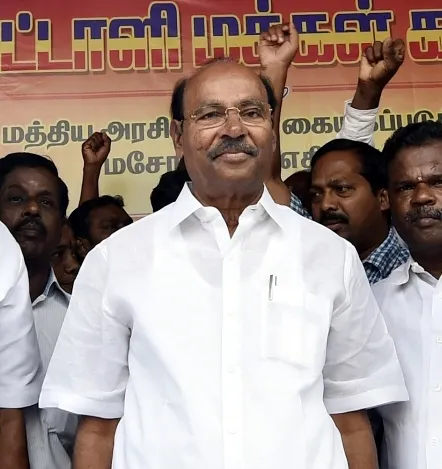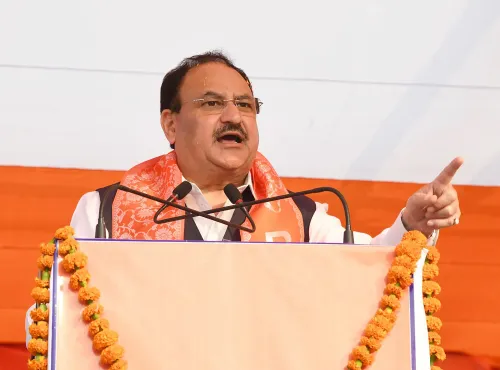How Can Tamil Nadu Combat the Fertiliser Shortage?

Synopsis
Key Takeaways
- Dr. S Ramadoss emphasizes urgent government intervention for farmers facing fertiliser shortages.
- Promotion of organic and natural fertilisers is crucial for sustainable agriculture.
- Increased public awareness about the benefits of millet-based diets is needed.
- Action against price inflation by traders is necessary.
- Long-term strategies for soil health must be developed.
Chennai, Oct 22 (NationPress) The founder of Pattali Makkal Katchi (PMK), Dr. S Ramadoss, has urged the Tamil Nadu government to take immediate action to tackle the current fertiliser shortage impacting farmers throughout the state, especially during the northeast monsoon planting season.
In a statement released on Wednesday, Dr. Ramadoss noted that favorable monsoon rains and enhanced irrigation systems have led farmers to cultivate a greater area of land with paddy this year in comparison to the last season. Unfortunately, many farmers are now facing challenges in acquiring adequate fertilisers, resulting in distress within the agricultural sector.
“Some traders are allegedly exploiting the shortage by charging inflated prices for fertilisers,” he asserted, advocating for stringent measures against such practices.
The PMK leader emphasized that while the government addresses the immediate fertiliser shortage, it should also promote organic and natural fertilisers as sustainable long-term solutions. He highlighted the necessity of making these natural fertilisers readily accessible to farmers through agricultural development centres.
Dr. Ramadoss reminded that prior to the Green Revolution, the use of chemical fertilisers in India was minimal, with farmers relying primarily on natural nutrients like nitrogen, phosphorus, and potassium for crop growth.
“The quest for increased yields, the distribution of high-yielding paddy and wheat seeds, the expansion of irrigation facilities, and fertiliser subsidies have all contributed to the widespread use of chemical fertilisers,” he explained.
Addressing the environmental risks associated with excessive urea usage, Dr. Ramadoss pointed out that nitrogen from urea evaporates into the atmosphere, negatively impacts soil fertility, contaminates groundwater, and harms beneficial microorganisms.
“Nitrous oxide, which is released from nitrogen compounds, is 300 times more detrimental than carbon dioxide as a greenhouse gas,” he cautioned.
India stands as the second-largest urea consumer globally, with Tamil Nadu ranking among the top five states in fertiliser consumption. With the increase in paddy cultivation area, the demand for fertilisers has surged, he stated.
Dr. Ramadoss called on the Agriculture Department to raise public awareness about the nutritional advantages of millet-based diets over rice-heavy eating habits.
He also suggested offering subsidies and assistance to farmers engaged in the organic cultivation of millets, pulses, and oilseeds.
“By advocating for green manure, compost, and bio-fertilisers, we can lessen our reliance on urea and promote sustainable soil health,” he remarked, urging both Central and State governments to support natural farming and ensure a consistent supply of organic fertilisers to protect the future of agriculture in Tamil Nadu.









